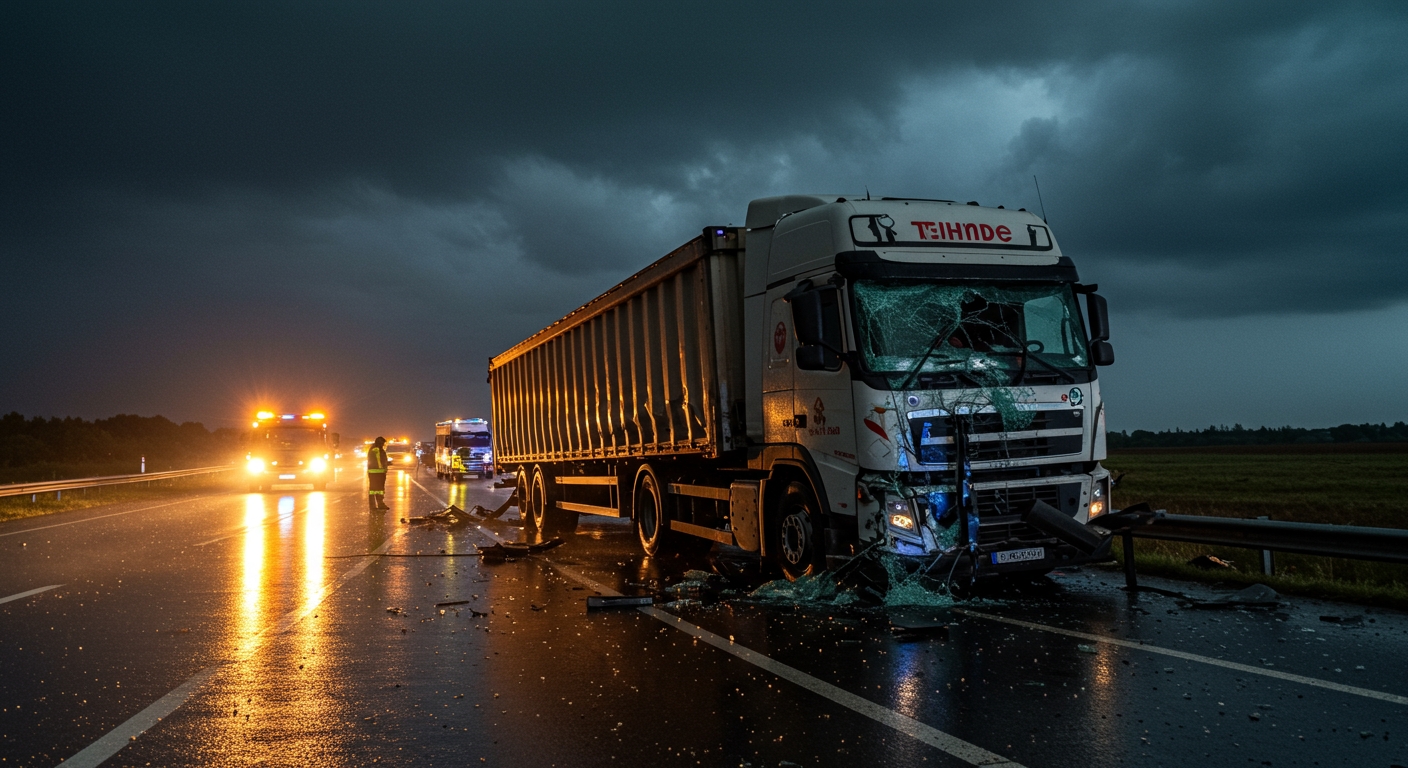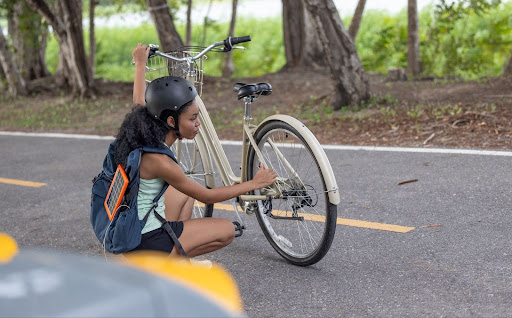Jackknife truck accidents are among the most dangerous types of roadway crashes. They occur when the trailer of a large truck swings out at an angle, forming the shape of a folding pocketknife. These crashes often involve multiple vehicles, cause significant damage, and lead to severe or even fatal injuries.
At Lowe Law Group, we understand how overwhelming it can be to face the aftermath of such an accident. Between medical bills, time away from work, and the trauma of the crash itself, victims and their families often feel powerless. That is why we are committed to guiding you through every step of a jackknife truck accident claim and fighting for the compensation you deserve.
This article explains what causes jackknife accidents, who may be liable, and what steps you should take after a crash. We also share practical safety insights to help reduce risks.
Key Takeaways
- Jackknife truck accidents happen when a truck’s trailer swings outward, often across multiple lanes.
- Common causes include driver error, mechanical issues, poor braking, and weather conditions.
- Liability can fall on truck drivers, trucking companies, or even manufacturers.
- Victims should gather evidence and seek medical care immediately to support a strong legal claim.
- An experienced attorney can manage the insurance process and fight for fair compensation.
What Causes a Truck to Jackknife on the Road
Jackknifing usually begins with a loss of traction. When a driver brakes too hard or too quickly, the trailer may skid and swing outward. Other causes include:
- Driver Error: Inexperienced or fatigued drivers often misjudge stopping distances or react poorly to traffic conditions.
- Improper Braking: Hard braking or uneven brake application between tractor and trailer increases the chance of jackknifing.
- Speeding: Excessive speed makes it harder to maintain control in emergencies.
- Mechanical Failure: Faulty brakes, worn tires, or malfunctioning trailer couplings can all contribute to the issue.
Jackknife accidents are sudden and often unavoidable for nearby motorists, which is why they so frequently result in chain-reaction collisions.
Weather and Road Conditions That Increase Jackknife Risks
Road and weather conditions play a significant role in truck stability. Rain, snow, or ice reduces traction, making skids more likely. Even strong crosswinds can cause a trailer to become unbalanced. Sharp curves or poorly maintained roads with potholes or uneven pavement add to the risk.
When weather conditions are poor, truck drivers are required to adjust their driving. Failing to slow down or increase following distances can lead directly to a jackknife accident. In fact, federal regulations emphasize that commercial drivers must continuously operate at safe speeds for existing road conditions, as per the Federal Motor Carrier Safety Administration.
Preventive Measures Truck Drivers Should Take
There are proven strategies to help prevent jackknife accidents:
- Maintain Proper Speed: Reducing speed gives drivers more time to react and control braking.
- Avoid Sudden Braking: Using steady, controlled pressure helps keep the trailer aligned.
- Regular Vehicle Maintenance: Checking tires, brakes, and couplings ensures equipment works properly.
- Increase Following Distance: Leaving more space allows for safer stops.
- Driver Training: Ongoing education helps truckers manage emergencies safely.
When drivers and trucking companies fail to follow these practices, they put everyone on the road at risk.
Liability Issues in Jackknife Truck Accidents
Determining liability in a jackknife truck accident can be a complex process. Several parties may share responsibility:
- Truck Driver: Negligence, such as speeding, fatigue, or distraction, can directly cause the crash.
- Trucking Company: Companies may be liable if they fail to maintain vehicles, enforce safe schedules, or hire qualified drivers.
- Manufacturers or Mechanics: Defective parts or poor maintenance can contribute.
In many cases, insurance companies try to shift blame or minimize payouts. Having a lawyer who understands trucking regulations and accident reconstruction is crucial to building a strong case.
Evidence Collection and Reporting After a Jackknife Accident
After a crash, the evidence you collect can make or break your case. Important steps include:
- Call 911 so that police and emergency responders arrive quickly.
- Get medical care right away, even for injuries that seem minor.
- Take photos of the accident scene, vehicle damage, and injuries.
- Collect contact details for witnesses.
- Request a copy of the police report.
- Avoid speaking with insurance adjusters before consulting with a lawyer.
Federal trucking regulations require trucking companies to keep certain records, including driver logs and maintenance files. An attorney can help secure this evidence before it is destroyed or lost. For example, the National Safety Council highlights the role of data and reports in understanding crash causes.
FAQs
Q: What is a jackknife truck accident?
A: It occurs when a truck’s trailer swings outward at an angle, resembling a folding knife, often blocking lanes and causing multi-vehicle crashes.
Q: Who can be held liable for a jackknife accident?
A: Liability can involve the driver, trucking company, maintenance provider, or even the manufacturer of faulty parts.
Q: How long do I have to file a claim after a jackknife accident?
A: Deadlines vary by state. In Utah, most personal injury claims must be filed within four years.
Q: What compensation can victims recover?
A: Common damages include medical expenses, lost wages, property damage, and pain and suffering. In some cases, punitive damages may be applicable if extreme negligence is involved.
Q: Do I need an attorney for a jackknife truck accident claim?
A: Yes. Trucking companies and insurers often use aggressive defense tactics. An attorney ensures your rights are protected and maximizes your compensation.
Conclusion: Protecting Victims of Jackknife Accidents
Jackknife truck accidents cause devastating injuries and financial strain. Knowing your rights and acting quickly after a crash is critical.
If your jackknife crash happened in North Dakota, a truck wreck injury lawyer in Bismarck can help you protect key evidence and pursue full compensation.
At Lowe Law Group, our attorneys have recovered millions for victims of serious truck crashes. We are familiar with the trucking industry, understand federal safety regulations, and aggressively advocate for our clients in and out of court. Clients trust us because we listen, explain the process clearly, and stand by their side throughout the entire process.
If you or a loved one has been injured in a jackknife accident, schedule a call for a free consultation. We listen. We care. You win.








